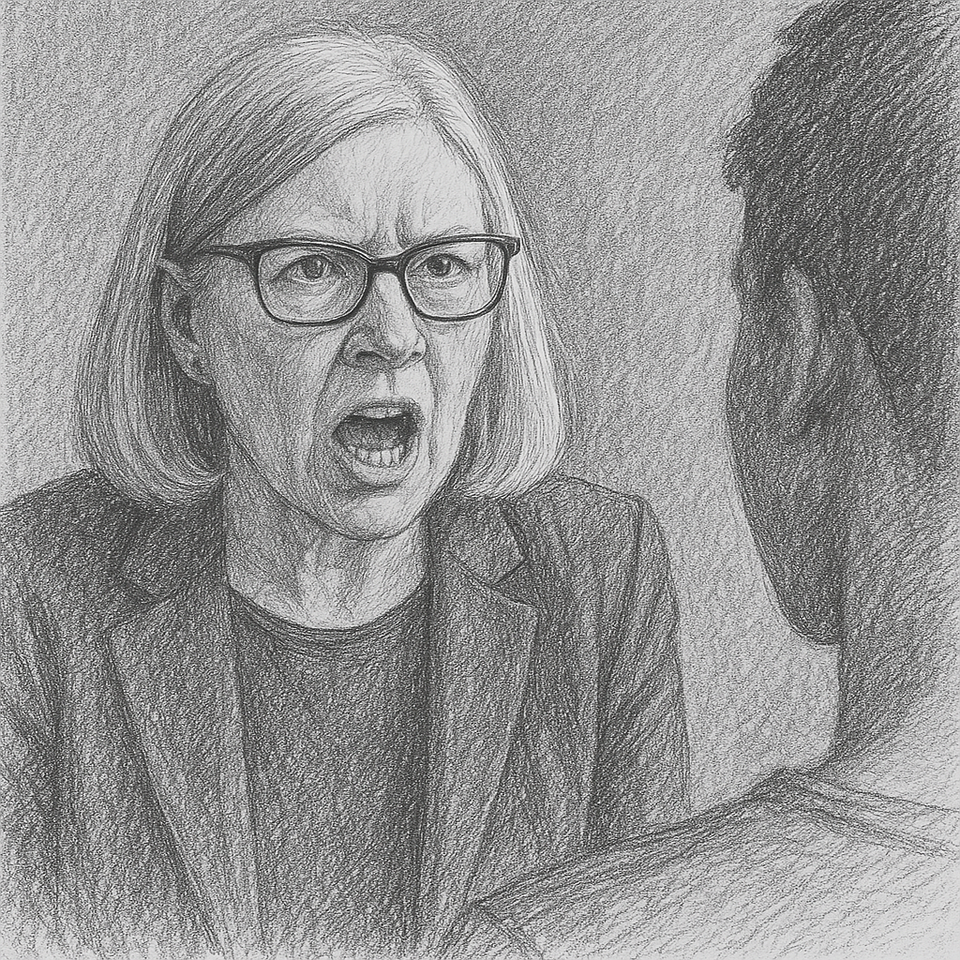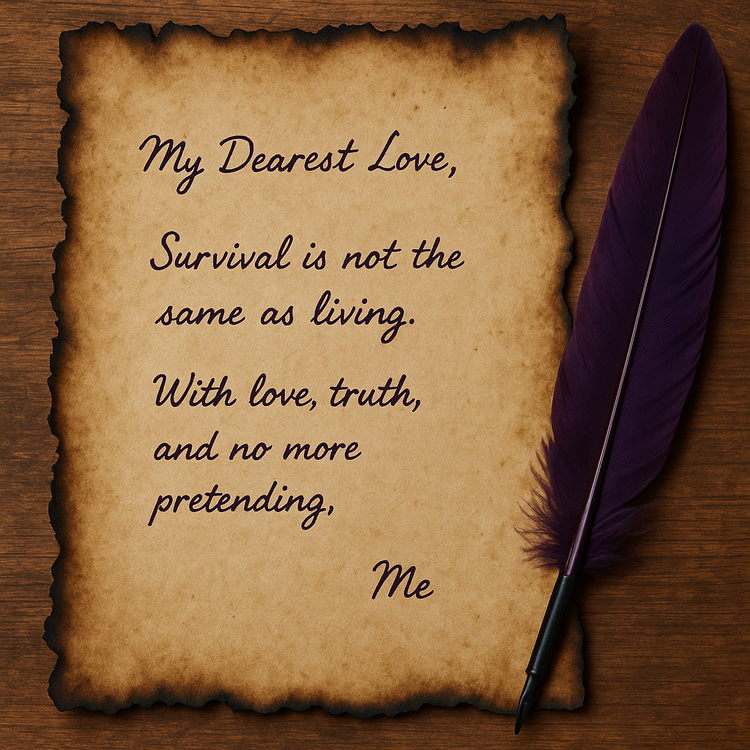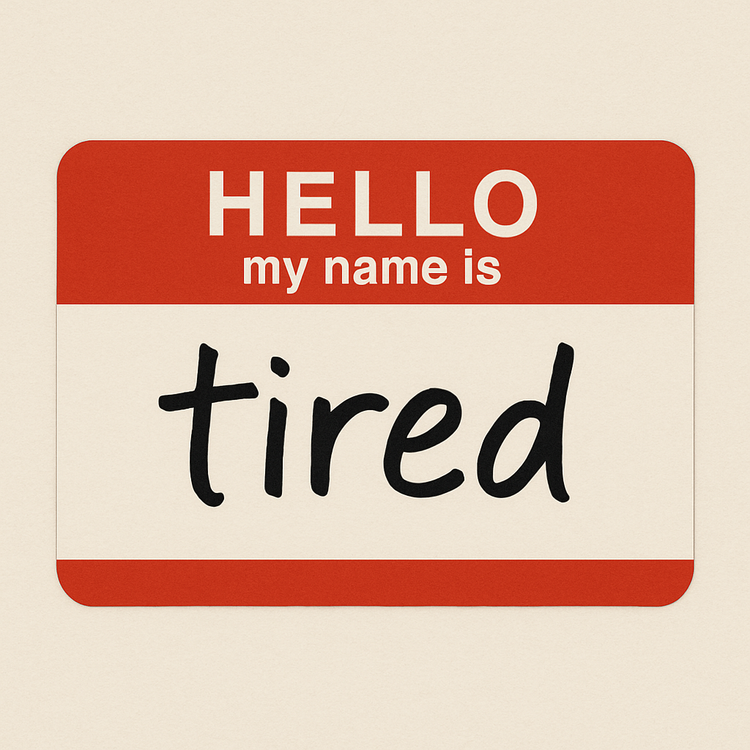The Voice in My Head Isn’t Mine

There is a voice in my head I have come to know intimately over the past 25 years. It’s precise. Measured. Always watching. Always correcting. For years, I assumed it was just my “standards”. But the more I have slowed down, the more I have unpacked the burnout that nearly broke me. The more I have started to realize that the voice I hear isn’t fully mine.
She is a late-aged white woman.
Not literally, but energetically. Her tone is crisp. Her wardrobe is subdued but polished. She doesn’t raise her voice, but her judgments land with surgical precision. She is the one who reminds me to “be professional” when I just want to be present. She questions whether I belong before I have even taken my seat. She tells me, subtly but firmly, to be agreeable, impressive, irreplaceable, but never too much. And she has lived in my head for decades.
I did not conjure her out of nowhere. She was built. Stitched together from years of microaggressions, sideways glances, “just a suggestion” feedback, and coded dress codes. She showed up when I was 20, working my first real job and being told that if I wanted to move up, I would need to “present more professionally.” She followed me through philanthropy and the nonprofit world, where being a Black woman in leadership often meant being twice as prepared, three times as polished, and four times as careful, just to be seen as competent.
She got stronger each time I walked into a room where I was the only one who looked like me. Each time I saw white colleagues make mistakes and be met with grace, while I perfected my every move to avoid judgment. Each time I swallowed a valid critique because I knew the consequences of being labeled “difficult.” She sharpened her tone in board meetings. She softened my voice in donor pitches. She reminded me to “pick my battles” when the only thing I wanted was to be honest. I’ve been calling her my inner critic. But lately, I’ve been asking, whose voice is this, really?
Because when I strip everything else away, she does not sound like my people. She does not sound like my grandma or my aunties. She does not sound like my 15-year-old self, dancing in her room to 90s R&B, full of softness and sparkle. She sounds like respectability. She sounds like assimilation. She sounds like the version of success that was designed to keep me palatable. And I know now she was a survival strategy.
She helped me move through systems that were never meant to honor my full self. She got me in the room. She helped me navigate toxic spaces without getting eaten alive. She made sure I did not scare the funders, did not offend the stakeholders, did not rock the boat unless I had the data and the finesse to back it all up. But she is also the reason I could not breathe.
She is the reason I walked around in a body clenched with tension, wondering if it was my chair or my posture, when really it was her. That voice, always performing. Always calculating. Never allowing rest. Never allowing softness. The truth is, she served a purpose. She kept me safe, or at least she tried. But now that I’m here—burned out, undone, and slowly reclaiming my actual voice—I see her for what she is. She is not the enemy. But she is not the leader anymore. Because I want a life where I do not have to translate myself in every room. I want to speak in my lower register, the one I have come to love again, without worrying if it makes me sound too aggressive, too tired, too Black. I want to wear what makes me feel powerful, not just what makes me look polished. I want to rest without guilt. I want to be visible without shrinking. And that means I have to let her rest.
I’m not firing her. I’m giving her a retirement package. She can sit quietly in the corner, sip her tea, and observe if she wants, but she no longer gets to run the show. She no longer gets to tell me what success looks like. She does not get to decide if I belong. Because I do. Not because I have proven myself. But because I am no longer asking for permission to exist. This journey, through burnout, through memory, through shadow work and voice reclamation, has been brutal and beautiful. And it has made something clear. That critic in my head was shaped by the system of capitalism disguised as professionalism. But the voice I am reclaiming now, the one under all the layers, that is mine.
She speaks in a deeper tone. She laughs louder. She does not need to be agreeable to be worthy. She knows that softness and power are not opposites. And she is learning, finally, that she does not have to prove a damn thing to anyone. Not anymore.
This resonated? Subscribe for more like this, directly from me to you. subscribe




Comments ()